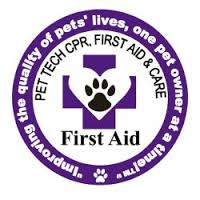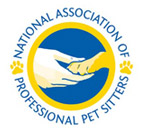 Winter can be a difficult time for pets and their owner. Ice, snow, and low temperatures present some special challenges for the pet owner.
Winter can be a difficult time for pets and their owner. Ice, snow, and low temperatures present some special challenges for the pet owner.
It is important to ensure that the environment is safe for pets and their people. Here are some ideas to make the colder months safe and comfortable for you and your furry friends.
- Avoid the salt that is used on sidewalks and roads as a de-icer. Protect your dog’s feet with boots or pad wax which protects paw pads from chemicals, salt and freezing pavement. As soon as you come inside, clean and dry your pet’s feet.
- Watch for icy areas that you or your pet(s) can fall and injure yourselves on. Wear sturdy, non-slip shoes to maintain the best footing possible.
- Never allow your pet to drink from puddles. The water may contain traces of antifreeze or other fatal or toxic chemicals. Puddles found in wooded areas may be contaminated by urine or feces from wild animals which may transmit disease or parasites such as giardia. It is a good idea to carry a water source for you and your pet on long walks.
- Guard against hypothermia by limiting the time spent outdoors. If your dog or cat is shivering, bring it inside. If the pet is weak, dazed, or if its muscles are stiff, wrap the animal in a warm blanket or towel and seek veterinary attention immediately. Remember that smaller frame, old, or juvenile animals are more susceptible to hyperthermia.
- After spending time outside, check exposed areas on your pet’s body, such as ears, for frostbite. Affected tissue looks less pink than usual and feels cold to the touch. Call your vet if you suspect a problem.
- Adjust your pet’s diet accordingly. Animals that spend more time outdoors may need more calories to maintain body heat. Indoor animals that are sedentary will require less food in the winter.
- If your dog, cat or livestock spends significant time outdoors, ensure that a dry shelter is available that is out of the wind. Also provide plenty of clean, thawed water at all times.
- If you must be away from home during a period of intense cold, make sure that your pet-sitter has an ample supply of all food, medications, and supplies in the event that stores or veterinary hospitals are closed during your absence. Leave instructions for emergency situations such as burst pipes.
The above suggestions should ensure that you and your pet are prepared for most winter situations. Stay warm!
Do you need a pet sitter while you are away at work for the day or on a trip? Call Four Paws Pet Sitting Services 919-388-PAWS (7297)
Check our Website out for Services we offer and visit our Sitters page!











Speak Your Mind